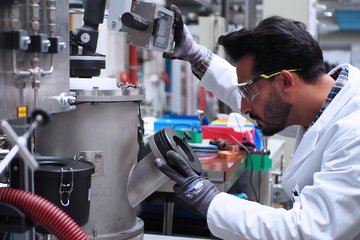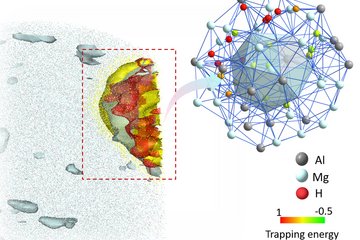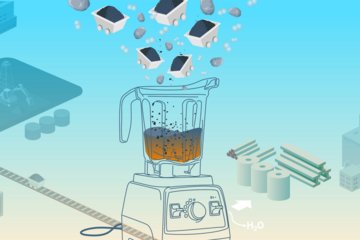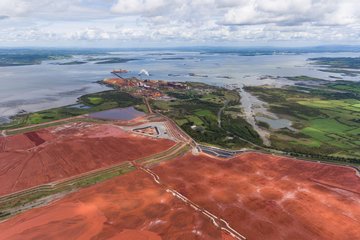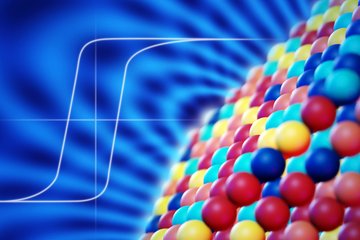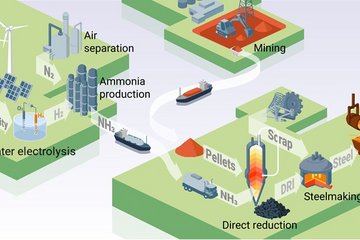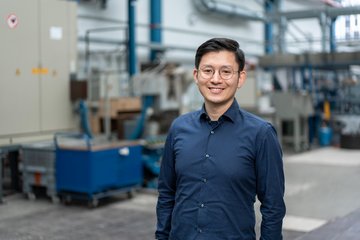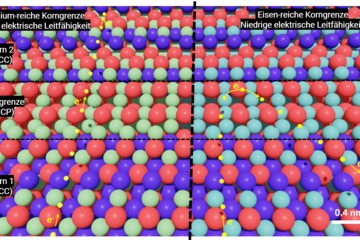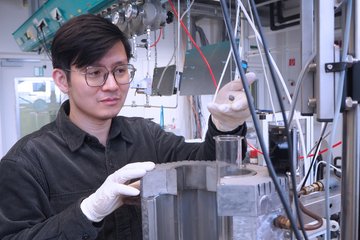Alle Typen
501.
Vortrag
Automizing work flows in computational materials design. Traceability and securing of results as essential challenges of research in the digital age, Berlin, Germany (2019)
502.
Vortrag
Atomistic simulations of hydrogen-defect interactions in metals. Workshop "Hydrogen in Metals - current understanding and future needs", St Anne's College, Oxford, UK (2019)
503.
Vortrag
High-throughput optimization of finite temperature phase stabilities: Concepts and application. DPG Frühjahrstagung der Sektion Kondensierte Materie, Regensburg, Germany (2019)
504.
Vortrag
First-principles approach to model electrochemical reactions at the solid-liquid interface. Spring Meeting of the German Physical Society (DPG 2019), Regensburg, Germany (2019)
505.
Vortrag
κ carbide microstructures and the role of interfaces in high-Mn lightweight steels. High-Mn Steel 2019, Aachen, Germany (2019)
506.
Vortrag
From Atomistic Understanding to Engineering Design of Advanced Medium and High Manganese Steels. 4th International Conference on medium and high Manganese steels, Aachen, Germany (2019)
507.
Vortrag
Impact of Interstitial Alloying of High Entropy Alloys from First Principles. TMS 2019, San Antonio, TX, USA (2019)
508.
Vortrag
Modelling structural materials in realistic environments by ab initio thermodynamics. Hume-Rothery Award Symposium, TMS2019 Annual Meeting and Exhibition, San Antonio, TX, USA (2019)
509.
Vortrag
Asymmetric Line Segregation at Faceted Si Grain Boundaries. TMS 2019 Annual Meeting & Exhibition, San Antonio, TX, USA (2019)
510.
Vortrag
Energetics of non-stoichiometric stacking faults in Fe–Nb alloys: An ab initio study. TMS 2019 Annual Meeting, San Antonio, TX, USA (2019)
511.
Vortrag
Exploiting large ab initio data spaces to design materials. Openning of Christian Doppler Laboratory for nanoscale phase transformations, Linz, Austria (2019)
512.
Vortrag
Extending First-Principles Calculations to Model Electrochemical Reactions at the Solid-Liquid Interface. Towards Reality in Nanoscale Materials X, Levi, Finnland (2019)
513.
Vortrag
Exploration of large ab initio data spaces to design materials with superior mechanical properties. Physics and Theoretical Division Colloquium, Los Alamos, NM, USA (2019)
514.
Vortrag
A fully ab initio approach to electrochemistry and corrosion. CNLS Colloquium, Los Alamos National Laboratory, Los Alamos, NM, USA (2019)
515.
Vortrag
Modelling electrochemical solid/liquid interfaces by first principles calculations. 19th International Workshop on Computational Physics and Material Science: Total Energy and Force Methods, ICTP, Trieste, Italy (2019)
516.
Vortrag
Impact of chemical compositions and interstitial alloying on the stacking fault energy of CrMnFeCoNi-based HEAs from first principles. The 2nd International Conference on High-Entropy Materials , Jeju, South Korea (2018)
517.
Vortrag
High entropy alloys beyond configurational entropy. MRS 2018 Conference, Boston, MA, USA (2018)
518.
Vortrag
Exploration of large ab initio data spaces to design structural materials with superior mechanical properties. Multiscale Materials Modeling (MMM 2018) Conference, Osaka, Japan (2018)
519.
Vortrag
Ab intiio modelling of solid/liquid interfaces: Challenges and insights. DESY Seminar, Hamburg, Germany (2018)
520.
Vortrag
Employing ab initio thermodynamics to design structurally complex materials. RCTP-2018 Conference, Moscow, Russia (2018)
